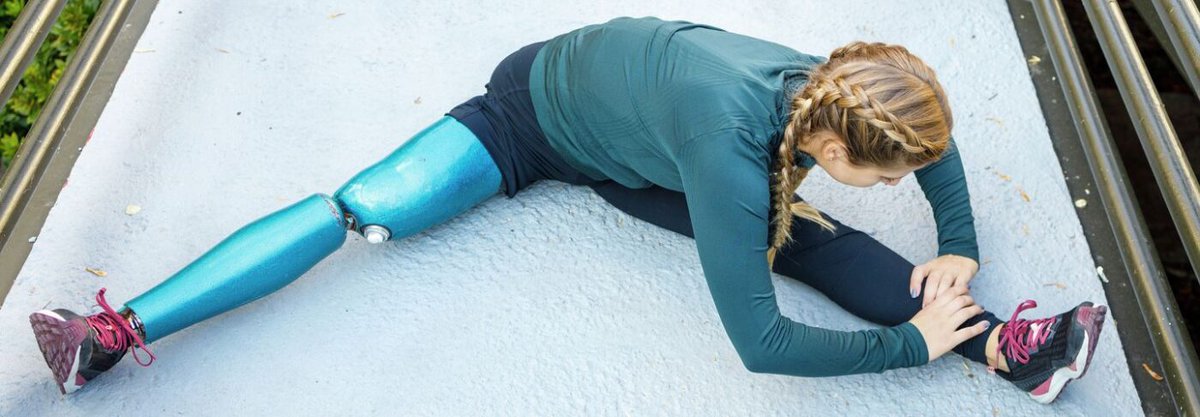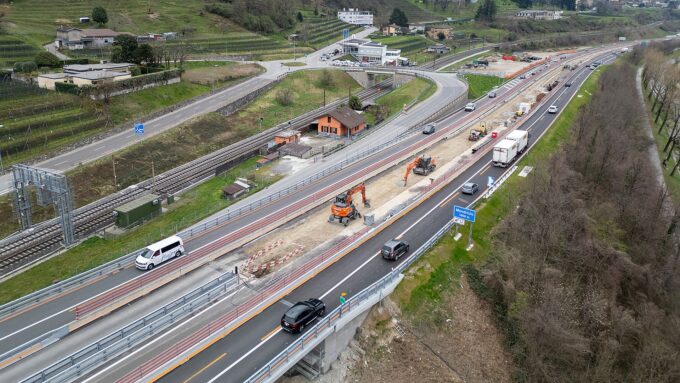Successful reintegration requires targeted cooperation
Last year, over 495,000 accidents were reported to Suva. 28,000 of these were serious cases resulting in prolonged absence from work. Fortunately, 90 percent of those affected succeed in returning to work. The support of the personal environment, the commitment of the employer and targeted measures by Suva are important for this success.
An accident can happen quickly. A glance at a cell phone, a moment of distraction, a thought elsewhere - sometimes it only takes a fraction of a second to completely change a life. Afterwards, it can take weeks, months or years for accident victims to find their way back into everyday and working life.
Studies show that after six months of incapacity for work, the chance of returning to work is halved. It is therefore important for those affected to be able to return to work as soon as possible.
Effective measures for returning to work
Last year, Suva registered over 495,000 leisure and occupational accidents. Around 28,000 of these (6 percent) were so serious that they resulted in absence from work of three months or more.
Suva takes various measures to help people who have had an accident return to everyday life and work. Suva case managers provide comprehensive support to accident victims with serious injuries, a prolonged absence from work and an uncertain professional future. They accompany those affected throughout the entire healing process: during an inpatient rehabilitation stay, medical services and therapies, reintegration measures and the coordination of cooperation with the medical profession, employers and other social insurances. "Helping accident victims regain a professional perspective contributes significantly to successful rehabilitation and is very important to us," says Barbara Ingold Boner, Head of Claims Processing at Suva.
The personal environment promotes the healing process
After an accident, it is often a difficult time for the person affected. This makes it all the more important to have the support of the whole community. "For a successful return to everyday life and work, it is not only the commitment of Suva, doctors or therapists that is important, but also the support of the personal and professional environment," explains Barbara Ingold Boner. "Family, friends, employers and colleagues can contribute a lot to the recovery process. Small acts of kindness and positive conversations give patients strength and hope and thus support a successful recovery."
Employers also have a significant influence on whether a good reintegration after an accident is successful. A secure job gives employees who have had an accident confidence for the future. "It is important that accident victims do not lose their social environment, feel needed and have a daily structure," emphasizes Vinzenz Baur, Head of the Competence Centre for Occupational Integration at the Suva Clinic in Bellikon. "Our experience shows that people want to return to work after an accident. This is because work not only provides material security, but also promotes social cohesion and creates a sense of purpose."
A benefit for everyone - also financially
Thanks to effective cooperation, an average of 90% of accident victims have been able to return to work in recent years. This means that the reintegration rate is at a high level. This is a win-win situation for everyone: those affected regain some quality of life and financial security, companies retain their important skilled workers and can save on insurance premiums, and Suva is relieved of the burden of paying daily allowances and pensions - an advantage that benefits all insured persons in the form of lower premiums.
A victim tells his story: Bobsledder Sandro Michel
Sandro Michel (29) was a professional bobsleigh athlete. After a serious training accident in the ice channel, things did not look good for the young man. But a dedicated team of doctors was able to prevent the worst and save his badly injured leg. Sandro is now back at work. He is still fighting for his comeback in bobsleigh. The fact that the athlete and project manager always had his family, his employer and Suva at his side was an indispensable help on his way back to his private and professional life. "I am incredibly grateful for the support of everyone around me. Without all these people, I would clearly be a lot further down the road today," Sandro is convinced.
Suva's current reintegration campaign "Being there helps, no matter what" shows Sandro's whole story as well as tips on how relatives and employers can effectively support those affected in their return to everyday life and work. The campaign is running until the end of September on various channels (TV, online, social media, print).










